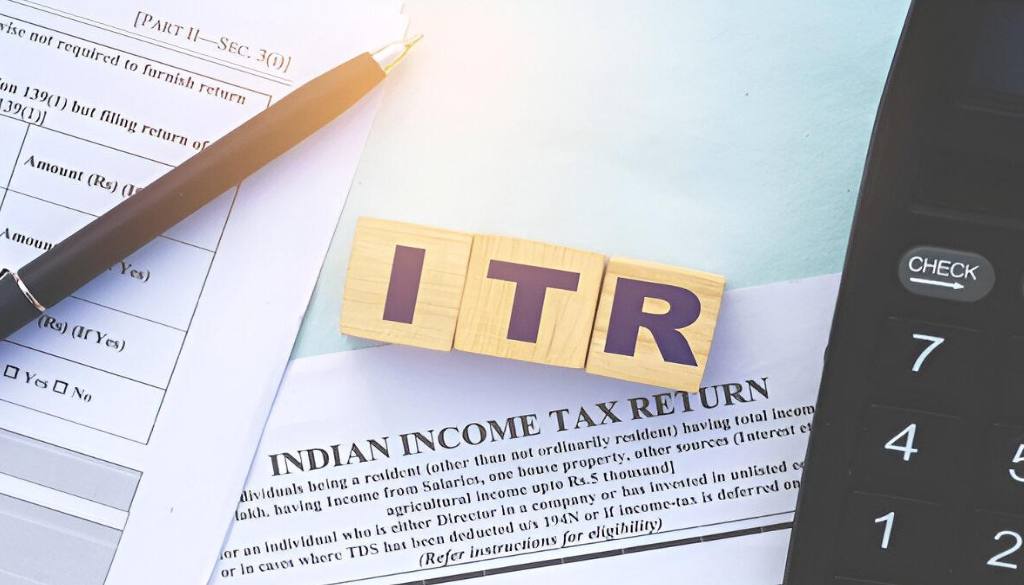What Happens If You Miss the ITR Filing Deadline?

Pune, 17 April 2025: Income Tax Return – is a crucial part of managing your finances. It’s a legal requirement and a way to claim tax benefits and refunds. If you miss the deadline for filing, it leads to various consequences.
But a delayed filing doesn’t always mean the worst. There are ways to manage the situation, depending on how late you are and whether taxes are due.
First, let us understand the consequences of missing the ITR deadline:
Pay the late fees
Filing your Income Tax Return after the deadline comes with a late fee under Section 234F. If you miss the due date but still file within the same assessment year, you will be charged a penalty of ₹5,000. However, if your total annual income is below ₹5 lakhs, the penalty is capped at ₹1,000. The later you file, the more complicated it gets, so it’s always advisable to submit your ITR on time.
Subject to interest penalty
Apart from the late fee, if you have unpaid taxes, you will also incur an interest penalty under Section 234A. The government charges 1% per month (or part of a month) on the outstanding tax amount from the day after the deadline until you complete the payment. This interest accumulates until the tax is cleared, making delays expensive.
The ability to carry forward losses is revoked
If you have incurred losses from business, capital gains or other sources, you can carry them forward to future years and offset them against your income to reduce your tax burden. However, this benefit is available only if you file your ITR before the due date. Missing the deadline means losing this advantage.
Delay in refunds
If you have paid more tax than required and are eligible for a refund, filing late can cause unnecessary delays. The sooner you submit your return, the sooner the Income Tax Department can process your refund. Delayed filing means waiting longer for your money to be credited. This can impact your finances, especially if you were expecting an early refund.
What steps can you take?
If you miss the ITR filing deadline, it doesn’t mean you have lost the chance to file your return altogether. The Income Tax Department allows taxpayers to file a belated return. This is an ITR submitted after the due date. However, there are certain conditions and consequences to keep in mind.
File a belated return as soon as possible
The sooner you file, the better. A belated return can be submitted before the end of the assessment year (March 31 of the following year). For example, if the due date for filing ITR for the financial year 2024-25 was July 31, 2024, you can still file a belated return by March 31, 2025. However, late fees and interest penalties will apply.
Pay any pending tax along with interest
If you have outstanding tax liability, clear it while filing the belated return. Under Section 234A, you will be charged 1% interest per month on the unpaid tax amount from the due date until the payment is made.
E-Verify your ITR to complete the process
Filing alone is not enough. You must also e-verify your return within 30 days to ensure it is processed. This can be done through Aadhaar OTP, net banking or other methods available on the Income Tax portal.
Check if you can revise the return later
If you make any mistakes in the belated return, you still have a chance to correct them. The Income Tax Department allows taxpayers to file a revised return before the end of the assessment year. However, filing a belated return in the first place means you may already face penalties or loss of certain tax benefits.
Plan ahead to avoid future delays
Missing the deadline once can be a learning experience. To avoid it next time, set reminders, prepare financial documents in advance and ensure you file well before the due date.
Final verdict
Missing the ITR deadline isn’t ideal, but it’s not the end of the road. Take prompt action. File a belated return, clearing pending taxes and verifying your submission. This helps minimise penalties. Delays can lead to extra costs and lost benefits, so it’s best to act fast.
If you’re unsure about your tax liability, understanding how to calculate taxable income can make the filing process easier. Keep track of your income sources, deductions and exemptions to ensure accuracy and prevent future delays. Plan ahead, stay informed and make timely tax filing a habit to avoid unnecessary stress.








